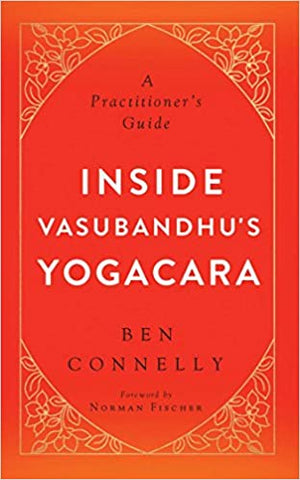
By Ben Connelly
A practical guide to Vasubandhu's classic work "Thirty Verses of Consciousness Only" that can transform modern life and change how you see the world.
In this down-to-earth book, Ben Connelly sure-handedly guides us through the intricacies of Yogacara and the richness of the “Thirty Verses.” Dedicating a chapter of the book to each line of the poem, he lets us thoroughly lose ourselves in its depths. His warm and wise voice unpacks and contextualizes its wisdom, showing us how we can apply its ancient insights to our own modern lives, to create a life of engaged peace, harmony, compassion, and joy.
In fourth-century India one of the great geniuses of Buddhism, Vasubandhu, sought to reconcile the diverse ideas and forms of Buddhism practiced at the time and demonstrate how they could be effectively integrated into a single system. This was the Yogacara movement, and it continues to have great influence in modern Tibetan and Zen Buddhism. “Thirty Verses on Consciousness Only,” or “Trimshika,” is the most concise, comprehensive, and accessible work by this revered figure.
Vasubandhu’s “Thirty Verses” lay out a path of practice that integrates the most powerful of Buddhism’s psychological and mystical possibilities: Early Buddhism’s practices for shedding afflictive emotional habit and the Mahayana emphasis on shedding divisive concepts, the path of individual liberation and the path of freeing all beings, the path to nirvana and the path of enlightenment as the very ground of being right now. Although Yogacara has a reputation for being extremely complex, the “Thirty Verses” distills the principles of these traditions to their most practical forms, and this book follows that sense of focus; it goes to the heart of the matter—how do we alleviate suffering through shedding our emotional knots and our sense of alienation?
This is a great introduction to a philosophy, a master, and a work whose influence reverberates throughout modern Buddhism.
Paperback 248 pages

